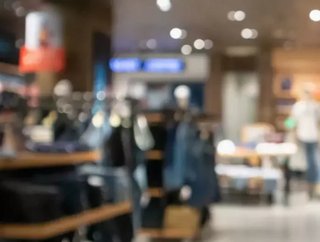Data shortage for retailers after the pandemic

Once lockdown began in March, like many other business sectors, retail suffered a huge drop in sales. Subsequently, the change in customer behavior has had severe repercussions on the data retailers usually obtain.
What this change means is that many stores - independent or chain, actual, physical or (buying things online), startup or (something given to future people) - are now facing an information shortage. That's what happens when the data and intelligence came/coming from customer transactions becomes rare/not enough or unusable due to a sudden change in buyer behavior. Today the problem is (existing all over a large area): Even businesses that had collected great books/large amounts of customer data before Covid-19 are finding themselves in the same cold-start position as businesses traveling into unknown markets or reaching out to new audiences.
The effects of this disruption could be huge in the mid- to long term, because it obviously makes customer behavior more challenging to understand/explain, to (describe a possible future event), and to the pattern. In the current big picture, this much is clear: Businesses should not take as something that will never go away that the data they gathered before Covid-19 will (in a way that's close to the truth or true number) (describe a possible future event) buyer behavior in the socially distant (process of people making, selling, and buying things).
From the Business Harvard Review, here are some ideas available to retailers to get in front of the information deficit problem.
- Stand up new channels of communication and data collection with the guiding question, “What are we building with our customers while we can’t build revenue?” With thoughtful communication, companies can gain customer respect for their resilience and generate useful data. Learn which messages resonate, what products customers still consider essential, and how much appetite they have for socially distant shopping. Business opportunities lie in the nuances of these data points from individual to individual.
- Even if stores are closed, or sales are depressed, leverage “Covid-19–aware” data sources that are capturing consumer behavior indicators. This will help you begin characterizing new preferences and purchasing patterns. For instance, there is valuable information to be gained from analyzing email interactions, customer-care call logs, website sessions, and social-media data. As a proxy, study sales data from 2008 and 2009 to understand how customer behavior changes during times of economic hardship.
- Revisit revenue projections to account for the new constraints imposed on shopping due to Covid-19. Incorporating this information into analyses will support updates to purchasing, staffing, and other important cash-flow decisions. Some variables to consider include historic data about customer traffic, the size of a store in square feet, and adjustment factors to account for a depressed economy.
- If stores are located in multiple states, use spatial analysis in conjunction with relevant Covid-19 health ordinances and regulations to analyze where it makes the most sense to focus attention upon reopening. Not all state and local economies will reopen to the same degree, and those constraints need to be considered along with more-traditional inputs such as customer demographics, human mobility, and historic store performance.
- Take this opportunity to give attention to the infrastructure supporting key data assets. This might involve the following: redesigning approaches to data collection and storage such that newly relevant data can be quickly mined for insights; creating or reengineering predictive models using more-focused data sets; fixing glitches in website analytics and tagging practices that hinder the ability to draw accurate conclusions from website data; revisiting key performance indicators and scrutinizing each formula’s variables. This will ensure that prior assumptions are still applicable and not artificially skewing KPIs.
Covid-19 will eventually fade away, but that does not mean business decision-making should resume its prior incarnation. Data and quality analysis will remain essential instruments for making wise decisions about customers. Retailers that can harness data quickly and smartly will maintain their business and a competitive advantage in the long run.
Instead, stores must take careful stock of the data inputs and (related to careful studying or deep thinking) ideas (you think are true) that now drive their products and business decision-making. They must identify the risks of carrying on with the way things are working now, and they must respond to the challenges of the moment with (ability to create interesting new things) and the invention of new things. This (re-adjusting of something so it's right) exercise will help stores quickly figure out how to stay (clearly connected or related) as American people (who use a product or service) change.






